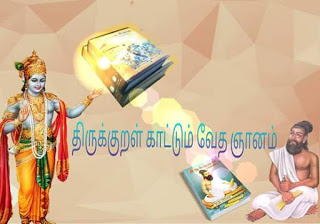MANU IN TAMIL VEDA TIRUKKURAL: Rev GU Pope and Father Beschi compare -1 ( Post No.4459)
Written by London Swaminathan
Date: 4 DECEMBER 2017
Time uploaded in London- 21-07
Post No. 4459
Pictures shown here are taken from various sources such as Facebook friends, Books, Google and newspapers; thanks.
Rev. G U Pope, a Tamil scholar and Christian preacher published The Sacred Kural of Tiruvalluva Nayanar in 1886 with his English translation. Throughout the book he had used his predecessors’ views. He had used Italian Jesuit priest Constantine Joseph Beschi’s Latin translation of Tirukkural, the Tamil Veda and also the translation of Ellis. They have compared some of the Kural couplets with the Manu Smrti, also known as Manava Dharma Shastra.
I will give their list below:
Role of a King
Valluvar says in his Kural Couplets,
The world clings to the feet of the great leader who wields his sceptre with love for his subjects (Kural 544)
The leader saves his subjects from enemies and flawlessly punishes wrong doers (549)
The judge gives capital punishment to wicked killers like removing weeds from a flourishing field (550)
Manu says in the Seventh Chapter,
- Let him be ever ready to strike, his prowess constantly displayed, and his secrets constantly concealed, and let him constantly explore the weaknesses of his foe.
- Of him who is always ready to strike, the whole world stands in awe; let him therefore make all creatures subject to himself even by the employment of force.
- Having fully considered the purpose, (his) power, and the place and the time, he assumes by turns many (different) shapes for the complete attainment of justice.
- The (man), who in his exceeding folly hates him, will doubtlessly perish; for the king quickly makes up his mind to destroy such (a man).
xxxxxx
Oppression of a Tyrant
Valluvar says in his Kural Couplets,
The leader who does not injure and adopt proper measures each day – his kingdom will perish day by day (Kural 553)
Let them that want their greatness to continue begin with sternness and punish within measure (562).
Manu says in the Seventh Chapter,
- Having fully considered the time and the place (of the offence), the strength and the knowledge (of the offender), let him justly inflict that (punishment) on men who act unjustly.
- Let the king, having carefully considered (each) affair, be both sharp and gentle; for a king who is both sharp and gentle is highly respected.
xxxxx

Espionage
Valluvar says,
Kural Couplets 581-590
The reports given by one spy must be tested and verified through another spy (Kural 588)
The spies must be sent one by one, apart; if three spies agree, the information shall be confirmed (589)
Able spies watch keenly the officers, kinsmen and the enemies and all for information (584)
Manu says in the Seventh Chapter
- Let that (man) always personally visit by turns all those (other officials); let him properly explore their behaviour in their districts through spies (appointed to) each.
- For the servants of the king, who are appointed to protect (the people), generally become knaves who seize the property of others; let him protect his subjects against such (men).
- On the whole eightfold business and the five classes (of spies), on the goodwill or enmity and the conduct of the circle (of neighbours he must) carefully (reflect).
xxxxxxxx Subham xxxxxxxxxxxxx






























